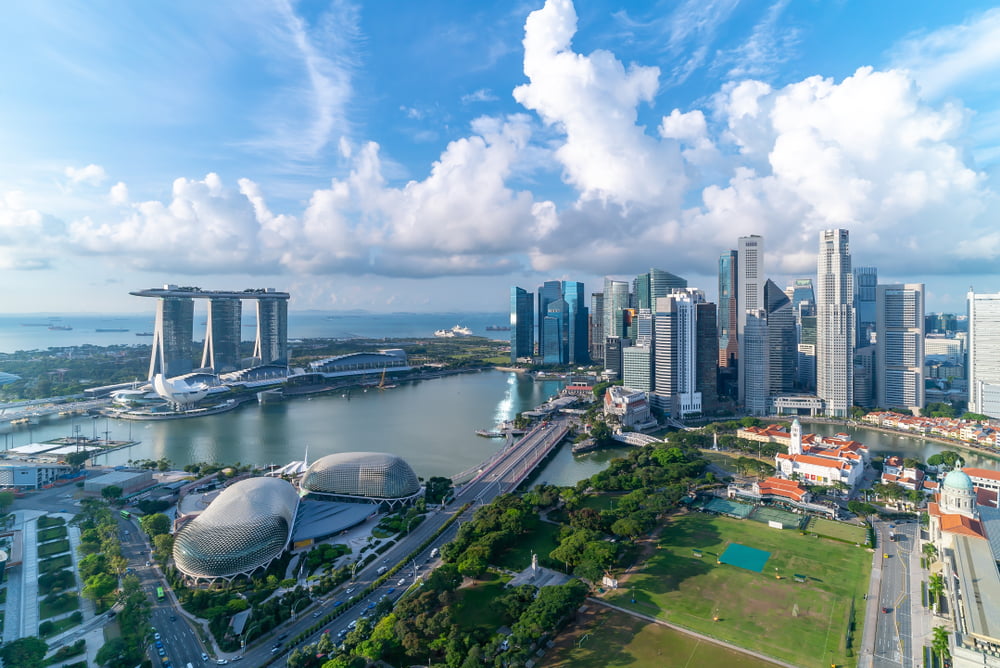- Sponsored Content

If you are one of the 1.68 million expatriates (non-permanent resident status) currently residing in Singapore, or a foreigner considering a move to this garden city, there is a wide range of housing options to choose from. However, there are also stringent regulations that you need to be aware of before issuing a deposit cheque to secure that dream pad.
Types of Property for Foreigners
Buying property in a foreign land is always more complex than purchasing one in your home country, but do not let this deter you because Singapore is a highly regulated country and once you understand your eligibility, the rest is pretty straight forward. Going through the Residential Property Act may provide you with some insights, and there are other key factors (highlighted below) that foreigners need to know before embarking on their property hunt in Singapore.
Properties That Foreigners Are Eligible to Buy
The first step is to understand the types of residential property that can be owned by foreigners and do not require additional approval from governing bodies before purchase. These include the following:
- Condominium unit
- Flat unit in a building of six levels or more, including the ground level and any level below the ground level, including HUDC Phase I, Phase II flats and privatised HUDC Phase III and IV flats.
- Strata landed house in an approved condominium development
- Leasehold estate in a landed residential property for a term not exceeding seven years, including any further term which may be granted by way of an option for renewal.
- Resale Executive Condominium (EC) that is more than 10 years old
- Landed property on Sentosa Cove
Restrictions
When researching properties in Singapore, you may come across the Housing Development Board (HDB) flats, which are regarded as public housing and heavily subsidised by the government. These properties are strictly for Singapore Citizens or Permanent Residents (PR) and foreigners are not eligible to purchase them.
Additionally, foreigners are also restricted from buying landed property on the main island of Singapore, unless approval is obtained from the Singapore Land Authority (SLA). These restricted properties include:
● Vacant residential land
● Terrace house
● Semi-detached house
● Bungalow/detached house
● Strata landed house which is not within an approved condominium development under the Planning Act (e.g. townhouse or cluster house)
In land-scarce Singapore, landed properties are harder to come by, hence stringent approval processes are done on a case-by-case basis. If you are adamant about buying a landed property and wish to apply for approval, do note that SLA gives priority to applicants who are permanent residents of Singapore for at least five years and have made economic contributions to Singapore. The assessment will take into consideration factors such as employment income assessable for tax in Singapore.
Property Taxes & Stamp Duties
Once you are clear about the property type you’re eligible to purchase, the next step is to understand the Buyer’s Stamp Duty (BSD) and Additional Buyer’s Stamp Duty (ABSD) that foreigners are required to pay when buying a property in Singapore. These are essential components to determine if the property you have shortlisted is affordable.
Buyer’s Stamp Duty (BSD)
This stamp duty is levied on all purchases of property within Singapore despite your nationality. The amount is based on the purchase price or market value of the property, whichever is higher. If you manage to negotiate a property valued at S$1.5 million to S$1.3 million, the BSD rate will still be calculated based on S$1.5 million, since it is higher than the purchase price.
The BSD calculation for a S$1.5 million property would be:
- 1% of the first S$180,000 = S$1,800
- 2% of the next S$180,000 = $3,600
- 3% of the next S$640,000 = $19,200
- 4% of the remaining amount of S$500,000 = S$20,000
So, the BSD payable would be a total of S$44,600.
Additional Buyer’s Stamp Duty (ABSD)
ASBD was first introduced in December 2011 as a “cooling measure” to prevent property prices from skyrocketing. It is also a way of discouraging buyers from over-leveraging financial facilities to invest in the property market which may result in a property bubble.
For foreigners, the ABSD is 20% on the purchase price as stated in the dutiable document or the market value of the property, whichever is the higher amount.
If you are a Citizen or Permanent Resident of Iceland, Liechtenstein, Norway or Switzerland and Nationals of the United States of America, you will be eligible for ABSD remission under the Free Trade Agreements (FTAs). As a result, you will be accorded the same Stamp Duty treatment as Singapore Citizens.
A Favourable Market to Invest
Once you are clear about your eligibility and factors such as ABSD and BSD that will affect your budget, the process of property hunting will very much be the same as most advanced cities. Doing thorough research about the Singapore property market and seeking the assistance of reputable property consultants will also path the way for a smoother transaction.
There are many ways to benefit from investing in properties in Singapore. Whether as home, for rental yield or capital appreciation, it is a market that provides diverse possibilities and security.
If you are exploring your options for an investment property in Singapore or consider buying a new launch condo or freehold condo for home, feel free to contact the team at Prop.sg for your real estate services and advice today.








